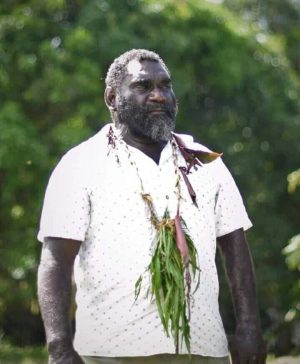Last week the election results in Papua New Guinea’s autonomous region of Bougainville were announced. This was the first election to be held after the region voted overwhelmingly (97.7 percent) in favor of pursuing independence from PNG. The new president of Bougainville will be Ishmael Toroama, a former commander in the Bougainville Revolutionary Army, and one of the key players in the signing of the peace agreement with PNG in 2001 after a decade-long civil war.
In voting for Toroama, the people of Bougainville consolidated their collective position in regard to their future status. Toroama stated during the campaign that the negotiations with the PNG government for the independence of Bougainville needed to be conducted quickly, and proposed a timeframe of two to three years. This may be ambitious, given the referendum was non-binding and PNG is reluctant to acquiesce to Bougainville’s independence. However, signalling that independence would be his intent and winning a democratic mandate on such a platform gives him considerable leverage.
While he may have this mandate, how he approaches the issue will be the true test of his statesmanship, because there are many moving parts at play beyond just honoring the independence referendum. Defending the stability of not just Bougainville and PNG, but the entire Melanesian region will need to be factored into Toroama’s approach to his negotiations with Port Moresby. Other independence movements are brewing throughout the region, and while some may have merit, they are also delicate issues that could potentially provoke violence if not approached with care.
Last week there were major protests in West Papua, for example, where local movements for independence from Indonesia are keenly observing Bougainville’s trajectory. On October 4, New Caledonia will hold a second referendum on independence from France. The province of Malaita in the Solomon Islands is attempting to organize an independence referendum due to its disgruntlement with the central government in Honiara. Alongside this, other provinces in PNG have been expressing a desire to gain greater autonomy from Port Moresby. Fear of instigating further secession is one of the reasons why the PNG government may be reluctant to grant independence for Bougainville.
Added to this is the influence of foreign powers on Bougainville, in particular the diplomatic recognition battle between China and Taiwan. Taiwan has already started laying the groundwork with Bougainville, immediately sending a letter congratulating Toroama on his victory. The letter also affirmed that Taipei would open a branch of the Taiwan International Cooperation and Development Fund in Buka, offered medical assistance to Buka’s hospital, scholarships for Bougainville students, and training for government officials. No doubt Beijing is considering countermeasures to make sure that if Bougainville does become the world’s newest country, they immediately recognize China.
These attempts to gain influence push and pull on developing countries with great force. Bougainville remains a region of significant developmental needs. Currently only 14 percent of its government’s expenditures are derived from internal revenue generation, which makes it reliant on international aid and goodwill. However, Beijing and Taipei attempting to manipulate these needs for their own purposes is an unfair game. While Taipei’s offers in its letter to Toroama may be genuine, they are not altogether altruistic.
This is tough terrain for Toroama to negotiate as a new leader. One factor that may assist him in his decision-making is the presence of four women in the newly elected House of Representatives. The participation of women in diplomatic negotiations is key to maintaining peace, and so the presence of these women should be considered a great advantage to the new president.
Of the three countries in the world with no female representatives in their national parliaments, Melanesia has two: PNG and Vanuatu. Yet Bougainville has recognized the importance of including women in its legislative body by having three reserved seats for women. With another woman winning one of the “open” seats, there is hope that the Toroama will give at least one of these women a ministerial position, and not sideline them during this important stage in Bougainville’s history.
Toroama’s path from a commander in the Bougainville Revolutionary Army during the region’s civil war, to helping negotiate the peace agreement that laid the path for last year’s referendum on independence, and now the potential founding father of the world’s newest country is a compelling story. Yet he finds himself in a position of great responsibility, with numerous competing interests to balance. His work as president will need to be for the well-being of Melanesia as a whole, not just Bougainville.

































